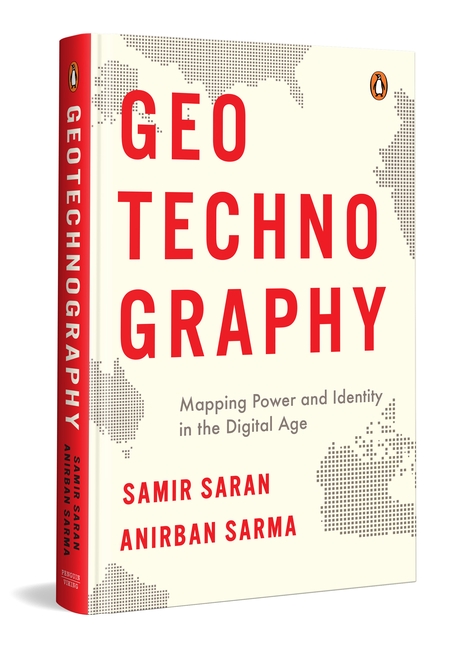
© 2020 Penguin India

In an era defined by rapid technological change, a seismic shift is underway. From the rise of digital platforms that mediate our interactions—with markets, with governments and perhaps most importantly with each other as citizens— to the growing tension between our online personas and our real-world identities, the forces of technology, geography and society are colliding in ways we are only beginning to understand.
Even as technology opens up new opportunities for civic engagement, it simultaneously disrupts the very foundations of societal cohesion. The digital age has given rise to a new stage for global drama—one where surveillance, the weaponization of information and the erosion of trust in national and multilateral institutions are playing out in real time. But as these forces evolve, so too must our understanding of how individuals and societies can navigate them.
Will digital societies endure, or are they doomed to collapse under the weight of their own contradictions? Can democracy as we know it survive in a world where power is increasingly concentrated in the hands of a few tech giants? And as nations grapple with the changing dynamics of governance, how will international norms, laws and institutions adapt?
In GeoTechnoGraphy, Samir Saran and Anirban Sarma offer a compelling analysis of the forces reshaping the modern world. Drawing on groundbreaking research and incisive insights, they examine how the convergence of geography and technology—geotechnography—is redefining power and writing new rules for its exercise.
Imprint: India Viking
Published: Mar/2025
ISBN: 9780143469513
Length : 328 Pages
MRP : ₹699.00
Imprint: Penguin Audio
Published:
ISBN:
Imprint: India Viking
Published: Mar/2025
ISBN:
Length : 328 Pages
MRP : ₹699.00
In an era defined by rapid technological change, a seismic shift is underway. From the rise of digital platforms that mediate our interactions—with markets, with governments and perhaps most importantly with each other as citizens— to the growing tension between our online personas and our real-world identities, the forces of technology, geography and society are colliding in ways we are only beginning to understand.
Even as technology opens up new opportunities for civic engagement, it simultaneously disrupts the very foundations of societal cohesion. The digital age has given rise to a new stage for global drama—one where surveillance, the weaponization of information and the erosion of trust in national and multilateral institutions are playing out in real time. But as these forces evolve, so too must our understanding of how individuals and societies can navigate them.
Will digital societies endure, or are they doomed to collapse under the weight of their own contradictions? Can democracy as we know it survive in a world where power is increasingly concentrated in the hands of a few tech giants? And as nations grapple with the changing dynamics of governance, how will international norms, laws and institutions adapt?
In GeoTechnoGraphy, Samir Saran and Anirban Sarma offer a compelling analysis of the forces reshaping the modern world. Drawing on groundbreaking research and incisive insights, they examine how the convergence of geography and technology—geotechnography—is redefining power and writing new rules for its exercise.
SAMIR SARAN is president of the Observer Research Foundation (ORF), India’s premier policy
think tank. He founded and continues to provide board level leadership at ORF’s affiliates in
America and the Middle East. Samir is Curator of the Raisina Dialogue; Co-Chair of the World
Economic Forum’s Global Future Council on Geopolitics; and member of the Board of
Governors of The East West Centre, US. Samir has authored four books, edited and curated
many important monographs and journals and written several academic papers and essays.
He is featured regularly in Indian and international print and broadcast media.
ANIRBAN SARMA is Director of the Centre for Digital Societies at the Observer Research
Foundation. His research explores issues of technology policy, with a focus on the digital
economy, platform governance, data, AI, digital public infrastructure and the future of work.
Anirban was a chair of the Think20 task force on digital affairs during the Indian and Brazilian
G20 presidencies. He earlier worked at the National Digital Library of India; and at UNESCO,
where he led the organization’s initiatives on tech for development across South Asia for
nearly a decade.
Books. They are like time machines that can take us to places we have never been, make us think about things we never considered, and open our eyes to stories that stay with us long after the last page is turned. Some books are easy to forget, but the ones we’re talking about here? They […]
